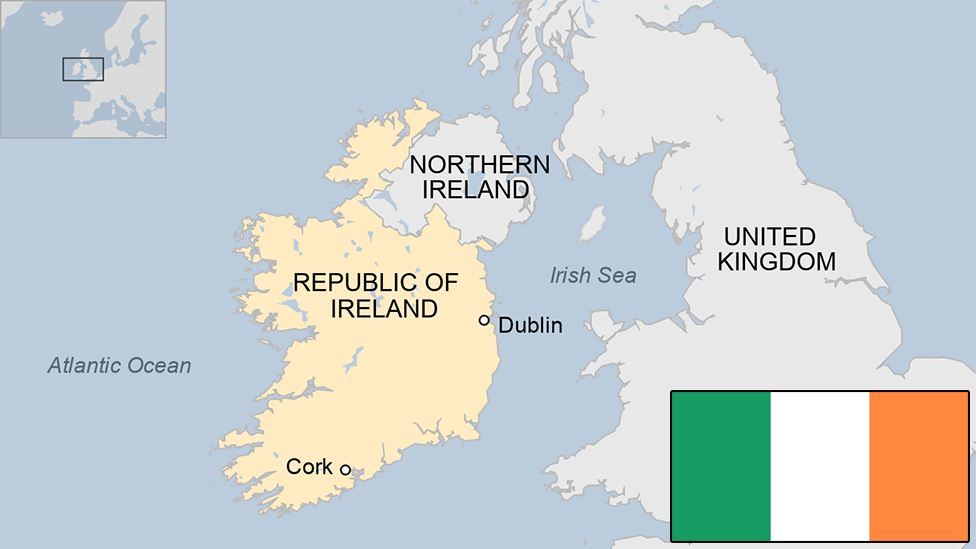Faroe Islands profile
- Published
This page is no longer being updated. It was last updated on 11 February 2025
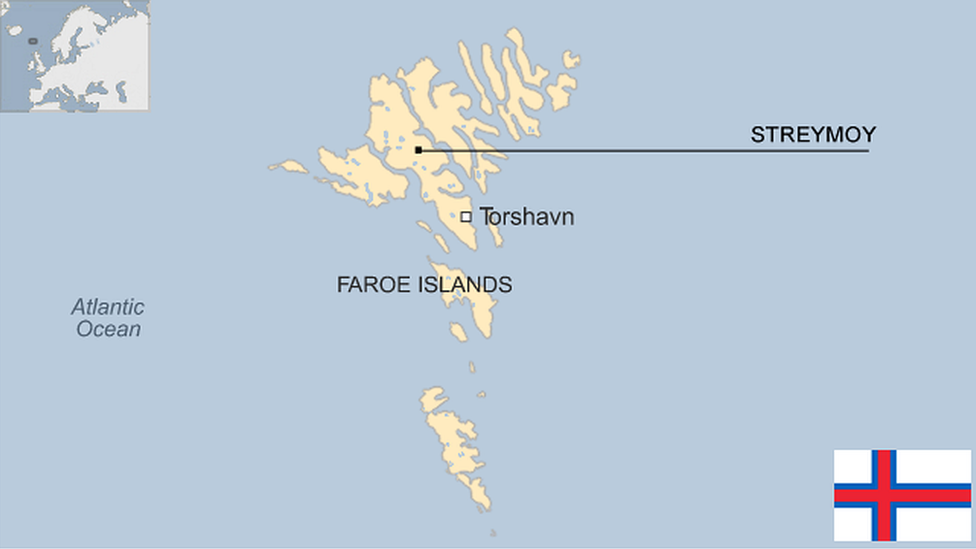
The Faroes, an archipelago of 18 islands in the North Atlantic, are a self-governing nation under the external sovereignty of the Kingdom of Denmark.
While the islands' rugged coastlines and extensive bird life are a draw for some, the Faroes also offer the prospect of major offshore reserves of oil and gas.
These potential resources have given extra weight to the argument for full independence from Denmark. But a planned referendum on the issue was shelved in 2001 after Denmark said it would halt aid within four years if voters favoured the independence proposals.
At present, the islanders are about evenly split between those favouring independence and those who prefer to continue as a part of the Kingdom of Denmark.
A local parliament - the Loegting - looks after the islands' affairs, although Copenhagen is responsible for defence and foreign relations. The Faroe Islands are not part of the European Union.
Read more country profiles, external - profiles by BBC Monitoring, external
FAROE ISLANDS: FACTS
Capital: Torshavn
Area: 1,399 sq km
Languages: Faroese, Danish
Population: 54,000
Life expectancy: 79 years (men) 84 years (women)
LEADERS
Head of State: King Frederik X of Denmark
Prime minister: Aksel V. Johannesen
Aksel V. Johannesen became prime minister in December 2022, leading a coalition government between the Socialdemocratic Party, the Republicans, and the Liberal Party.
MEDIA
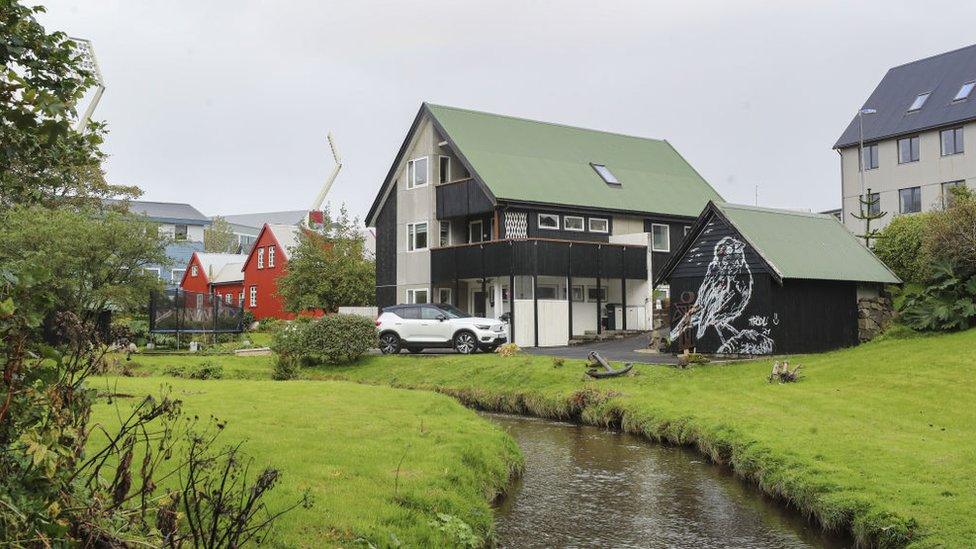
Fishing is the main economic activity on the islands
There are two national dailies in the Faroe Islands. The main national radio and TV services are publicly-funded.
There were 48,400 internet users by July 2022, comprising 98% of the population, while Facebook is the leading social media site with 47,000 users (Worldinternetstats.com).
Press
Dimmalaetting, external - daily
Sosialurin, external - daily
Vikubladid - weekly
Television
Kringvarp Foroya, external - public
Radio
Kringvarp Foroya, external - public
Ras 2 - commercial
Lindin, external - Christian
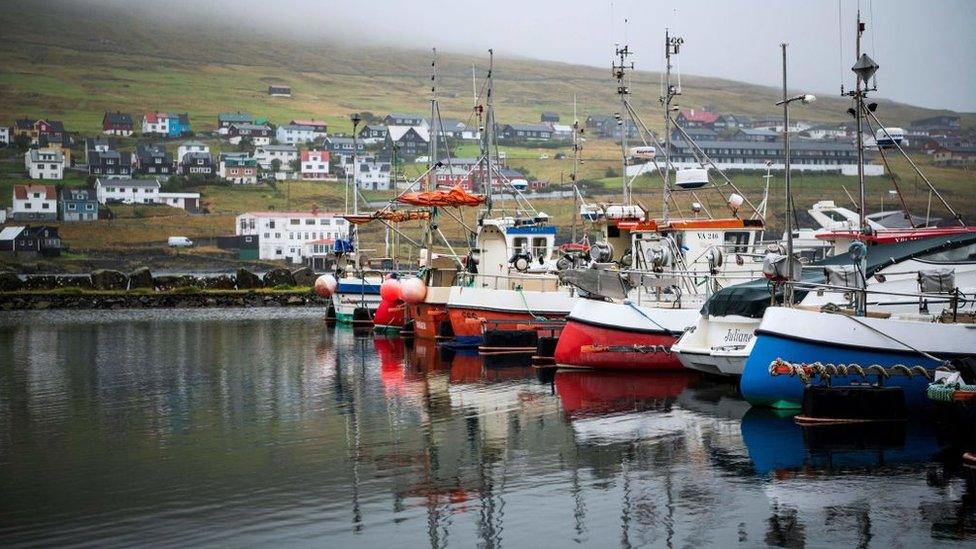
Danish subsidies remain an important source of income for the Faroe Islands
The Faroes were first settled by Irish monks in the 6th century AD. The first Norse settlers were farmers.
The islands became part of the Kingdom of Norway in the 11th Century and came under Danish control in the 14th Century when Norway joined the Kingdom of Denmark. Under the 1948 Home Rule Act the islands became self-governing.
The islanders' traditional hunt for pilot whales has attracted international attention. Supporters of the hunt say whale meat is an important source of food over the winter. Animal rights activists have called for the cull to be banned.
Fishing is the main economic activity on the islands, and Danish subsidies remain an important source of income. Copenhagen has said it will review the subsidy agreement should the Faroes profit from offshore energy reserves.
TIMELINE
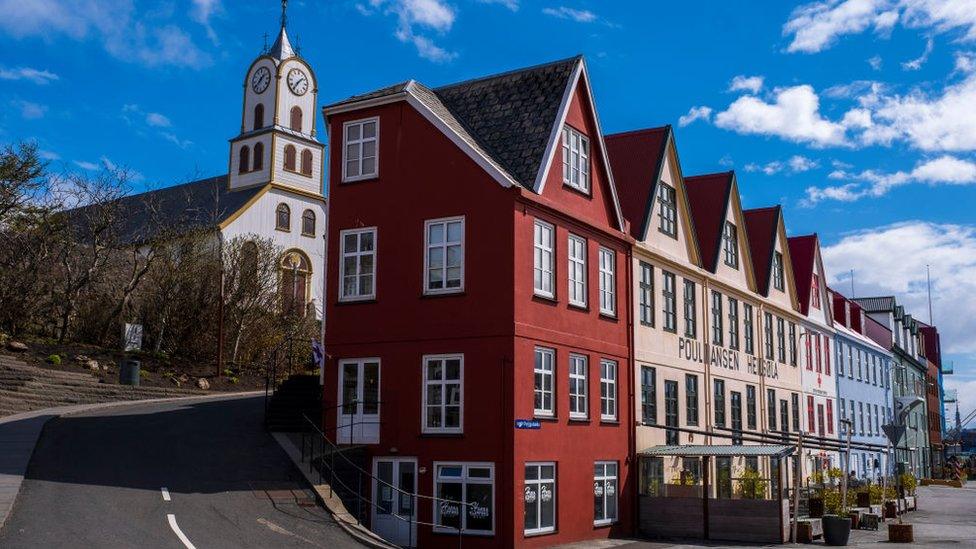
After World War Two the islands became self-governing
Some key dates in the Faroe Islands' history:
circa 600 AD - Irish monks settle on the islands.
circa 800 - Norwegian farmers arrive.
circa 1000 - Christianity introduced under the king of Norway's rule.
1035 - Islands become part of the Kingdom of Norway.
1380 - Along with Norway, the Faroe Islands become part of the Kingdom of Denmark.
1655 - Faroe Islands are presented to the von Gabel family. Their oppressive feudal rule ends in 1709 when the Faroes come under direct Danish rule.
1816 - Faroe Islands become a Danish county.
1849 - Under the Danish constitution the Faroes are given representation in both houses of the Danish parliament.
1856 - Danish trade monopoly ends.
1872 - Purchase of the first seafaring fishing vessel heralds the growth of the islands' main economic activity.
1906-09 - First political parties are formed, representing divisions over home-rule issue.
1940 - World War Two: British forces occupy the Faroes while Denmark is under German occupation.
1946 - Narrow vote for secession from Denmark in referendum. Danish king dissolves Faroese parliament.
1948 - Home rule act is passed. The islands become an autonomous, self-governing region of the Kingdom of Denmark.
1973 - Territory opts not to join the European Community with Denmark.
2001 - Planned referendum on independence is cancelled after Denmark says a pro-independence result would lead to a halt in annual subsidies.
2006 - The islands start importing whalemeat from Iceland, despite a UN ban on the trade
2022 - Faroe Islands agrees to provisionally limit its controversial dolphin hunt to 500 animals, after receiving widespread criticism over 2021's cull, where more than 1,400 were killed.
2024 - King Frederik changes the royal coat of arms to more prominently feature Greenland and the Faroe Islands.
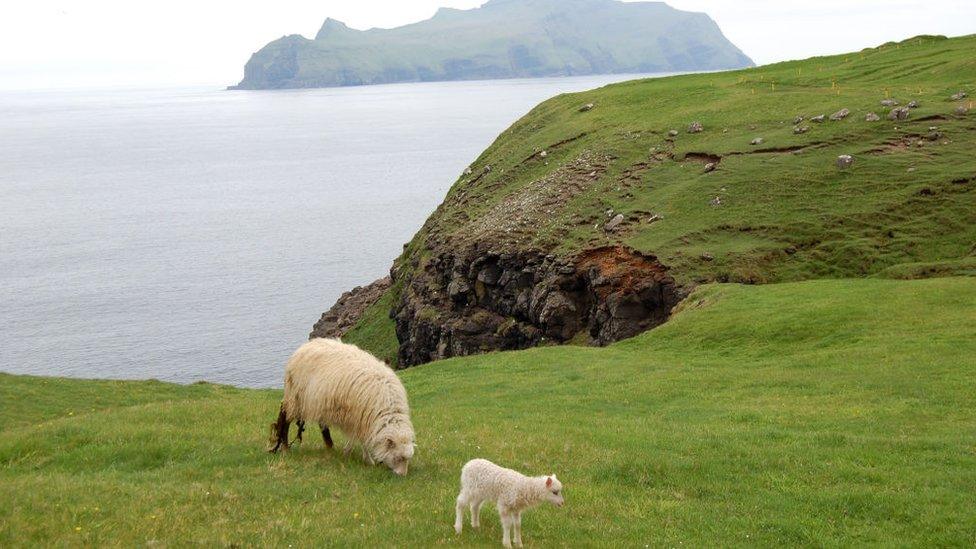
Copenhagen is responsible for defence and foreign relations
Related topics
- Published10 January
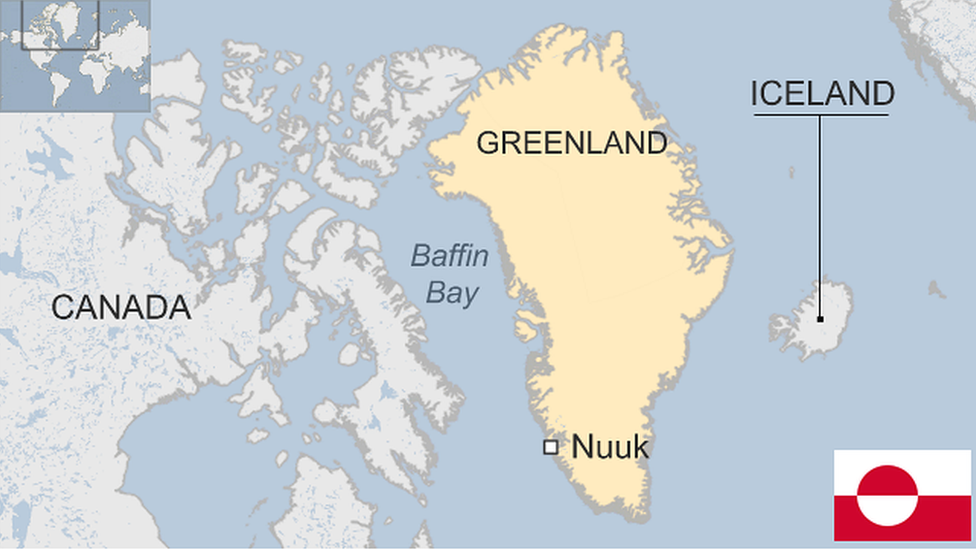
- Published25 October 2024
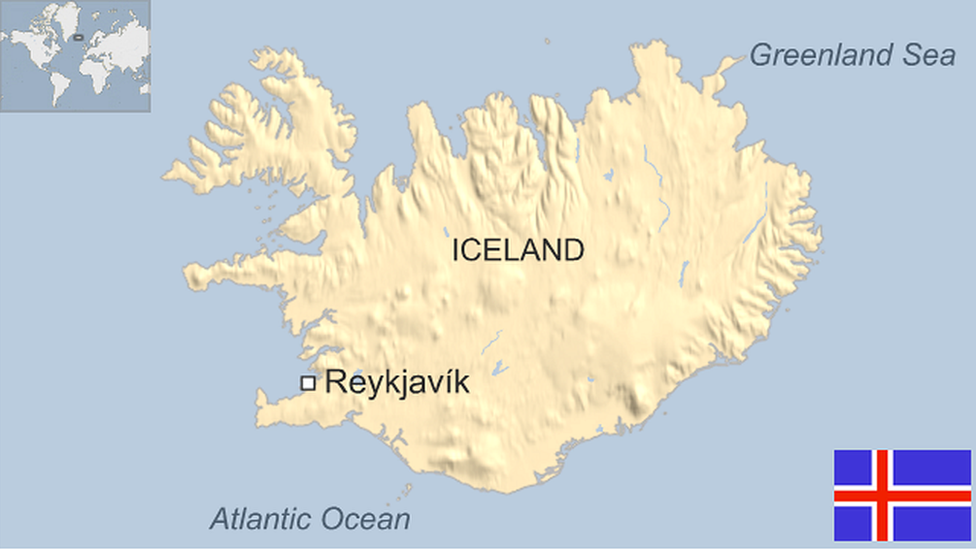
- Published28 March 2023
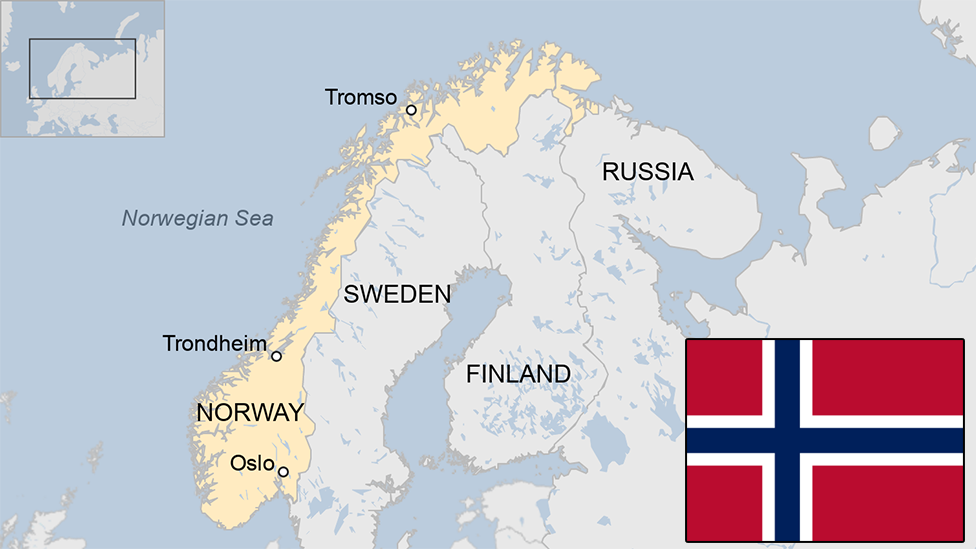
- Published29 March 2023
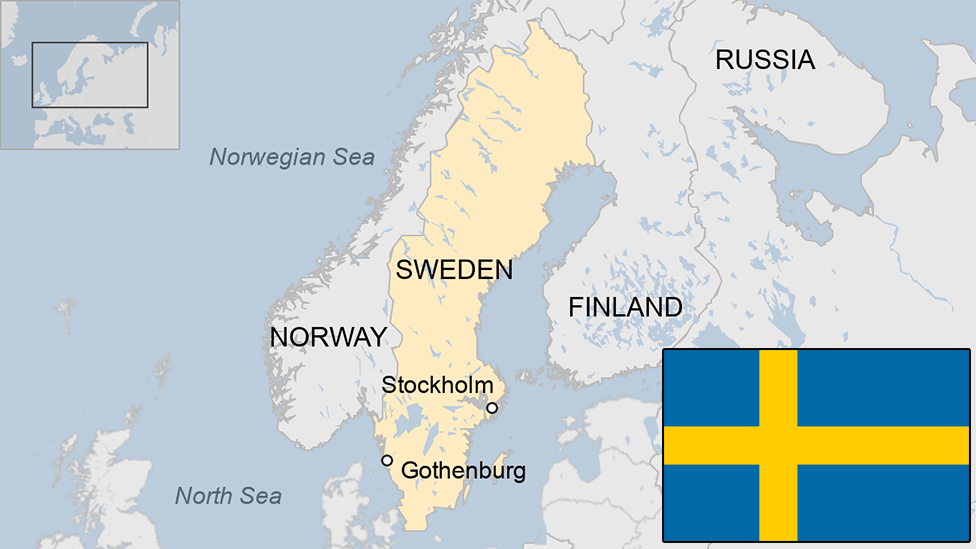
- Published8 January
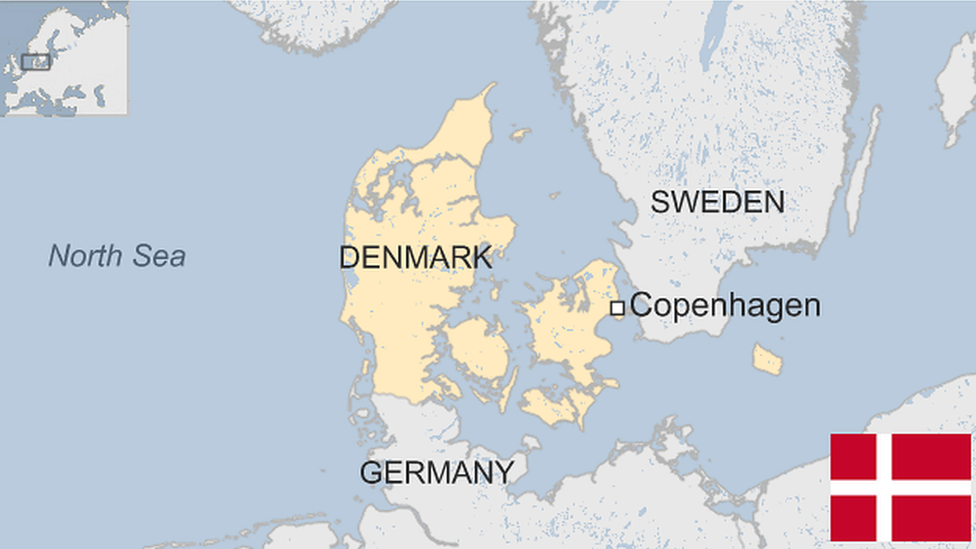
- Published9 July 2024
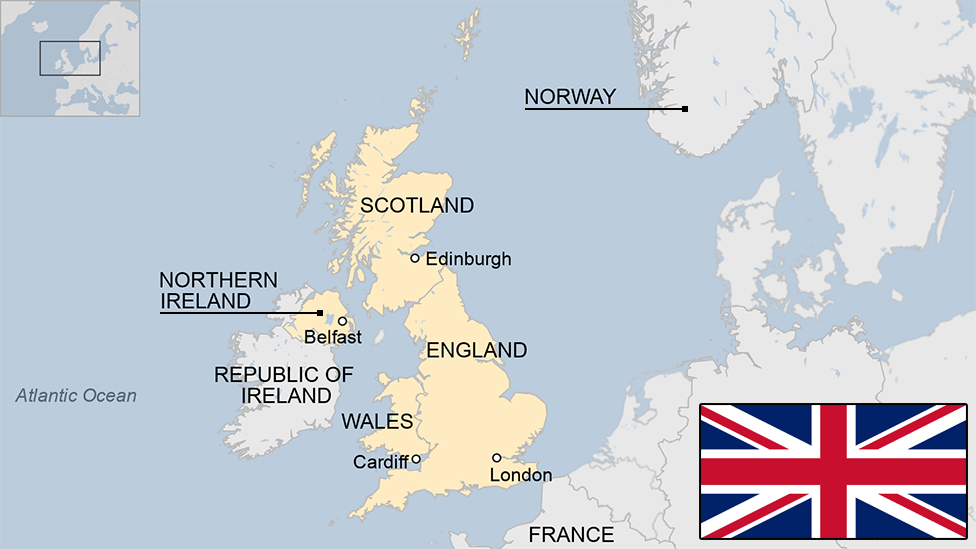
- Published7 February
